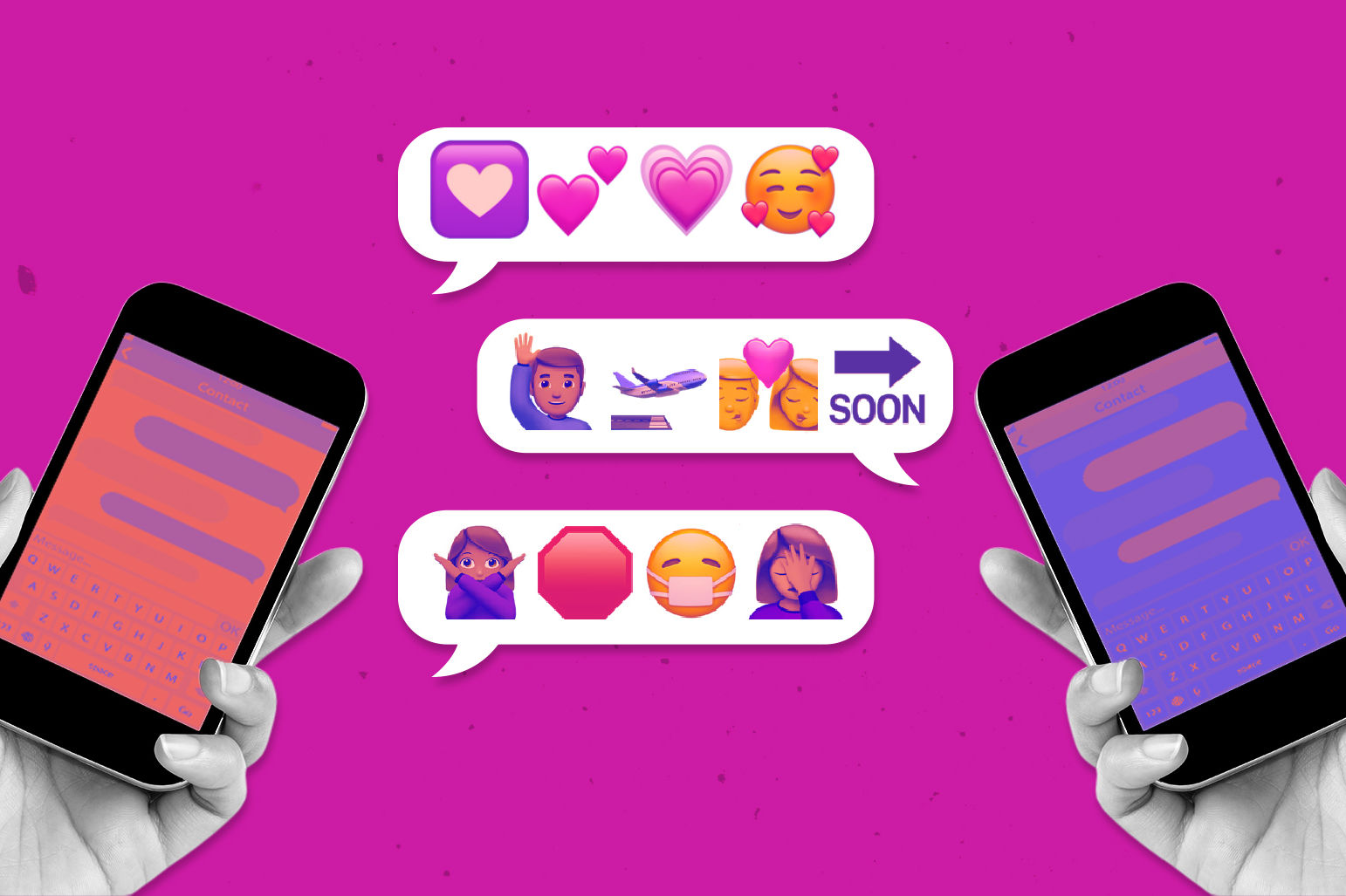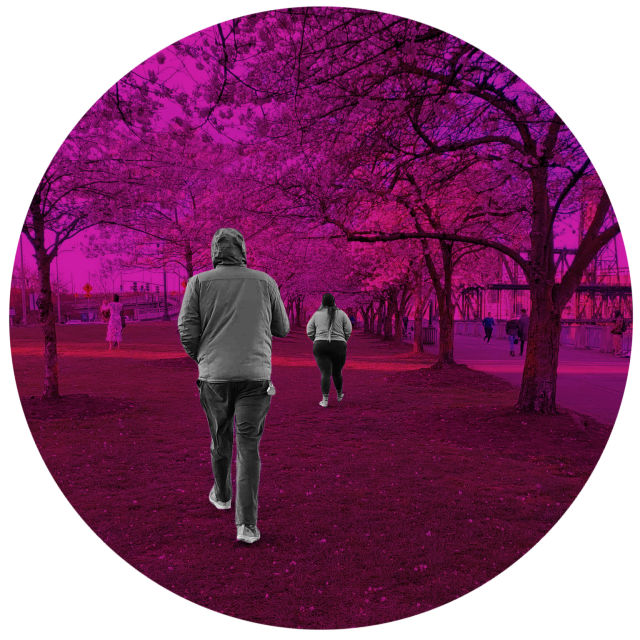
Love in the Time of COVID-19
My buddy, Alan, is a big boy. At six-foot-four, with 225 pounds to his name, everything from a high five to a bear hug is felt in delightful tremors throughout my body. These days, what with him living in Los Angeles and me freshly faced in the city of Portland, it’s sometimes far and few that he and I are able to catch up in person, and when we do, he hugs me, lifts me off of my feet, and squeezes me as I squeal and laugh uncontrollably. But when he hugged me Thursday night, I felt … uncertain.
He did, after all, just take a flight, in that insulated tube of recycled air with who-knows-what slithering through to the lungs of unassuming passengers, from LAX to PDX. In Los Angeles, there were more than 30 confirmed COVID-19 cases, about 247 in the state of California. That day, Mayor Ted Wheeler announced a state of emergency in Portland. And just the day before, the CDC declared coronavirus a “pandemic.”
Alan could have touched anything, been in contact with anyone—he’d probably washed his hands, but what do I know? And there he was, lifting me up, and I wanted him to put me down. It felt like an odd betrayal of our friendship.
“The fact that you felt bad is a great sign because it means that you are well aware of the dangers of physical proximity,” says Regan Gurung, a professor of psychological sciences at Oregon State University. “There are people who would not think twice about it. Those are the kinds of people who need to rethink it.”
I wasn’t simply asking Gurung to make myself feel better—although that was a nice side effect of having sought out the opinion of renowned expert in social support and relationship conflict. (Gurung has a great 2017 TEDx Talk on how psychology can help us think stronger and live longer.) I wanted to glean some insight into my and Alan’s particular relationships, because Alan wasn’t simply there to bear hug me in front of my apartment. He was visiting my friend Elena, also a recent PDX transplant, whom he has been dating for the past five years. About 20 percent of that time, he says, it’s been a long-distance relationship.
Alan (who asked that I stick to just his first name to discuss all this pretty personal stuff) says there’s a lot of extra work that goes in to maintaining long-distance relationships, and with coronavirus seemingly putting a stop to the world and inciting a lot of caution and fear, that extra work has become even harder.

“We’re in this time of great worry. It’s going to change a lot of the ways that we interact. That’s a very difficult topic right now," says my friend Alan. With the outbreak of the novel coronavirus, Alan and Elena, who are in a long-distance relationship, are working harder to show each other love in different ways.
Image: Gabriel Granillo and Brian Breneman
“It’s another reason to keep in contact more, you know. Just constantly checking up on each other. It’s definitely, I feel, kept us more in contact, and that’s one of the most important things in a long-distance relationship,” Alan says. “Keep talking, keep checking on each other. Since you can’t physically be there and show them affection, you need to be there and show them that you care.”
That’s what’s known as social support: the perception that you are loved and cared for. And in psychology, one of the most predictive psychological factors for both mental and physical health, Gurung says, is social support. And this applies to relationships beyond romantic—think familial or platonic, friends and family who live a city, a county, a state, a country away, as Alan (who has family in Mexico) and Gurung (who has family in India) do.
“Knowing that you’re cared for or believing that you’re cared for, that has a protective function,” says Gurung. “And it’s not that it just makes you feel better, part of it is that if you feel like you have social support, it actually influences your immune system. It’s very cool. It’s not just a psychological thing, but that psychological thing interacts with your physiology and the more support you have, the more your immune system is strengthened.”
So, taking the time, since many of us are working from home these days amid the coronavirus outbreak, to video-call someone or send a couple of quick texts or emails, Gurung says, is not an empty gesture. There’s a practicality to that behavior.
“If normally you were somebody who was extremely busy and ‘didn’t have time for your relationships,’ this is the time to cultivate your relationships,” he says. “This is the time to reach out and talk to people who you may not have spoken for some time, because that works both ways. That delivery and that exchange of social support can go a long way towards coping and helping us out.”
When we think of struggles in a relationship, we often sense that it’s internal and specific, some fracturing within the relationship that’s causing turmoil. But Gurung says the outbreak of the novel COVID-19 virus poses an interesting external relationship conflict—something that, as more and more cases and deaths reach our communities, is stoking our individual fears of mortality. He says we’re fearful for both our own safety and the safety of our loved ones. We all know we are going to die, he says—and if you didn’t, I’m sorry to spill the beans—“but all of a sudden, there are people are dying from this, and mortality becomes a lot more serious, a lot closer.”
And that stresses people out—go figure. But that stress unleashes a flurry of coping mechanisms, some of which, interestingly, involve people distancing themselves from facing it. Out of sight out of mind. Well, not quite, because that stress could show up in other ways, perhaps unconsciously.

"This is a time to be more open about your emotions with people you care about because people are worried. People are scared. It’s great to know that you have friends. This is a time where just literally a quick text or email makes a world of a difference," says Regan Gurung, professor of psychological sciences at Oregon State University
Image: Regan Gurung and Brian Breneman
“In relationship conflict, something that the research shows, is that a couple’s relationship conflict, or even friends’ relationship conflict, is likely to increase if either individual is independently stressed,” says Gurung. “So with the coronavirus ... we may be not processing or being explicit about our feelings, our fears about the virus, and we could very easily take it out on our kids or our spouses and our friends, and not even realize we’re doing it.”
What’s needed here, Gurung says, is a push to interact and have that conversation. It’s part of this larger idea about social distancing, which he feels is often mistermed to mean removing oneself from all social interactions. It’s physical distancing that’s important.
“I think for a number of people, they hear social distancing, they say, ‘OK, let’s hold ourselves up and not talk to anybody.’ Well, the first part is right, but this is the time to actually talk to people more,” says Gurung. “And I think we have the wonderful benefit of things like Facebook and instant messaging and things like that where, all of a sudden, with one tap on our phones we can see our loved ones. This is not the time to be hermits in the social sense. It’s definitely the time to be hermits in the physical sense.”
So handshakers and huggers, like my friend Alan, should attempt to short-circuit those natural inclinations, which is perhaps harder than it sounds, because touch is a language of compassion. Research shows that touch is fundamental to communication, bonding, and even health. The reality, at least for the next few months, is we need to use language more effectively to make up for our lack of touch.
My partner Kelcie lives in Nevada, where there are a reported 55 confirmed positive cases of coronavirus. And every day we chat, via text, phone call, or Google Hangouts, about this virus, our fears, and what it means for us. Alan and Elena are the same, attempting to navigate long-distance in the time of coronavirus. And it’s difficult—our jobs, our stability, our lives are up in the air. And, yes, it seems silly, and even I annoy myself saying this, but it feels unmistakably good when Kelcie sends me a “good morning” text with a black heart, when Alan (who flew home earlier this week) sends me updates about the state of LA, when I hear my mother’s voice and those godforsaken dogs barking in the background.
These days, whether we like it or not, we’re all in long-distance relationships—with our friends and family, at least for the foreseeable future. So how can we better navigate those relationships?
“So this really calls for patience,” says Gurung. “Before we jump to conclusions as to why people are behaving the way they are, during these times it may be useful to ask ourselves, ‘Could that person be worried? Could that person be scared? Can I help them?’ And I think that will go a long towards creating better interactions.”




